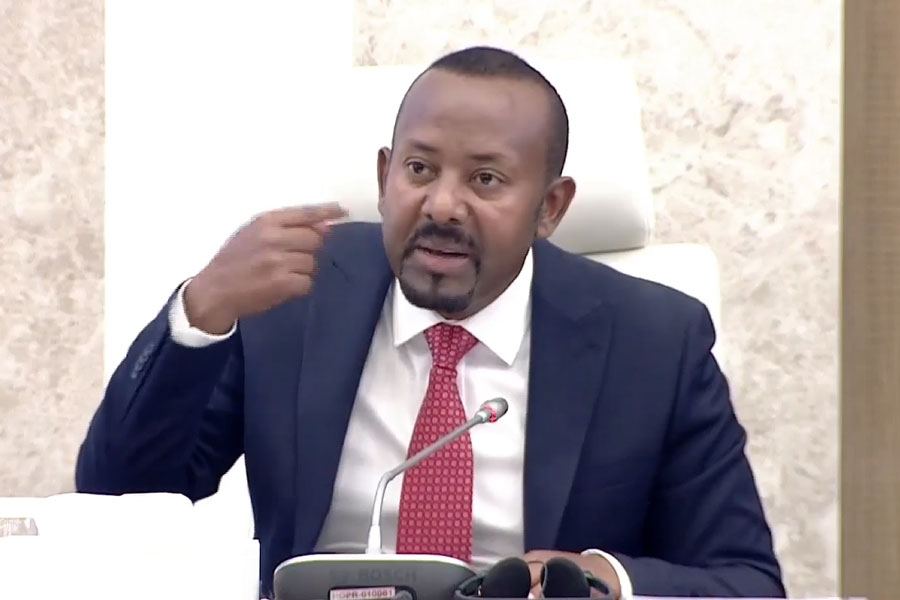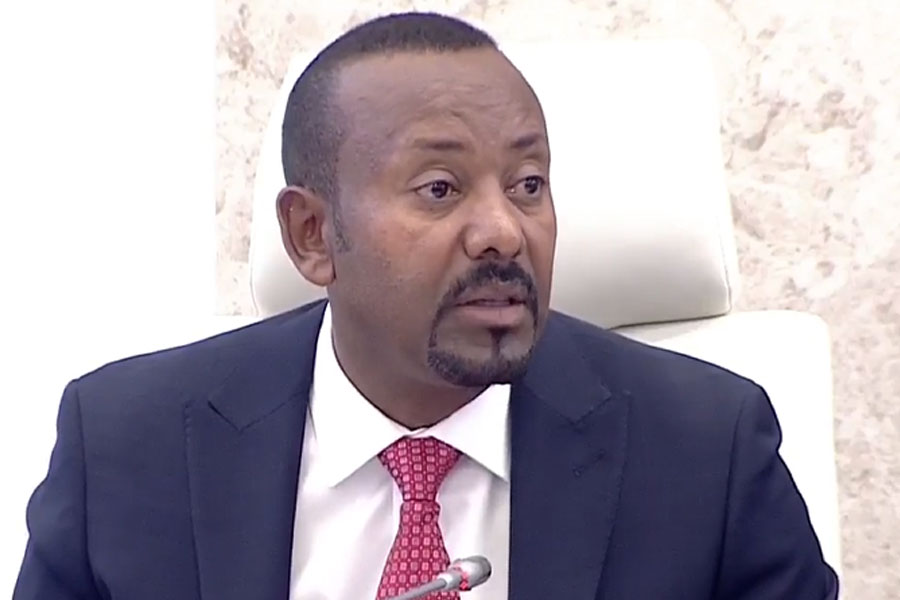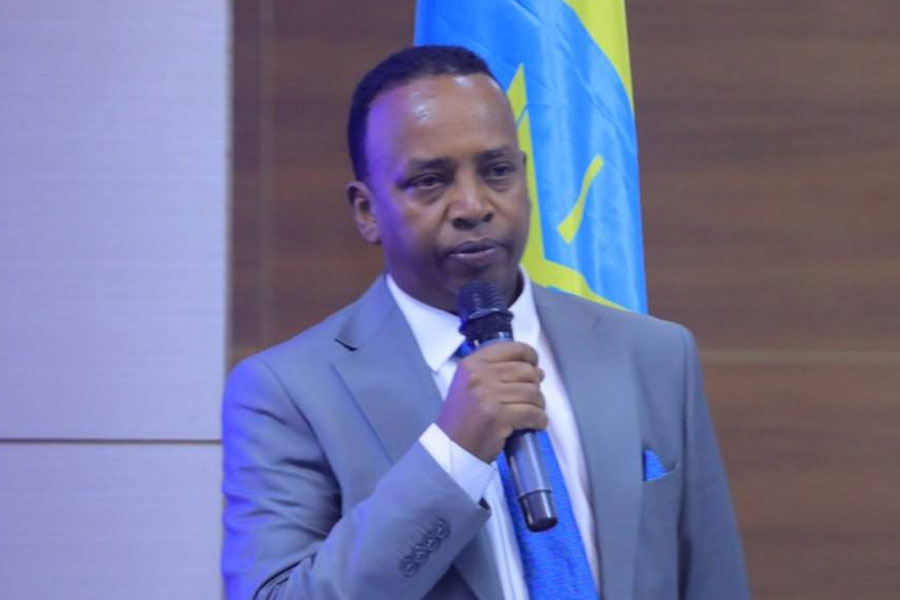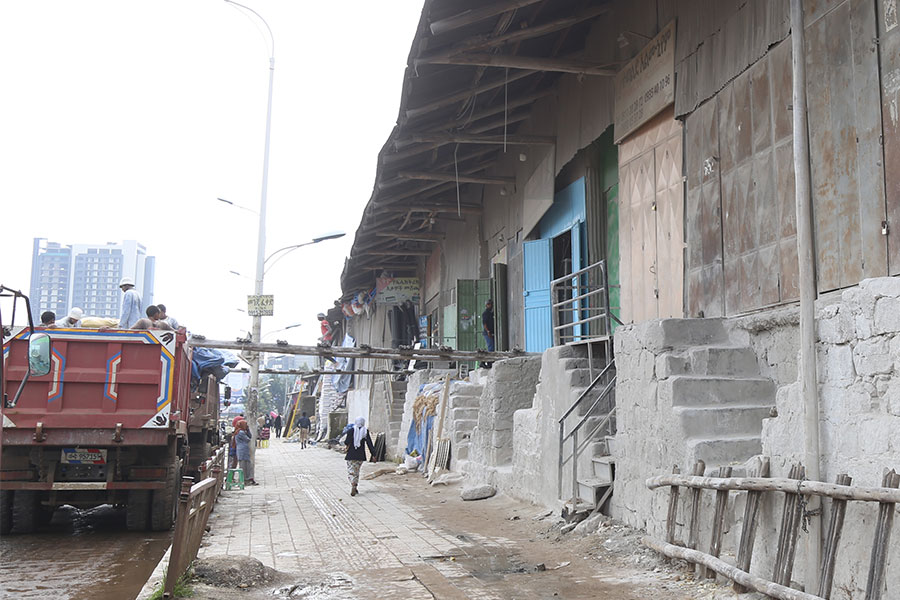
Oct 28 , 2025

Prime Minister Abiy has sought to calm mounting concerns over Ethiopia’s external debt, insisting the country faces “no difficulty” meeting its obligations despite a heavy 23 billion dollars load and protracted talks with creditors under the G20 Common Framework.
He portrayed Ethiopia’s economic position as "resilient," crediting years of macroeconomic policy reforme and debt restructuring negotiations for easing pressure on the public purse.
“Ethiopia has no problem paying its debts,” he declared, stating that the country’s debt-servicing capacity has improved alongside gains in export earnings and revenue mobilisation.
The comments mark one of Abiy’s most assertive attempts yet to project confidence in his administration's ecnomic stewardship, at a time when external observers remain cautious.
The International Monetary Fund (IMF) and the World Bank last month described Ethiopia’s debt as “unsustainable,” citing a surge in short-term obligations and falling foreign reserves.
Abiy acknowledged the burden, noting the country inherited “a distorted economy and high debt,” but argued that his Administration’s reforms had stabilised key indicators. Government revenue, he said, has more than doubled since 2018, and export receipts in the current fiscal year reached the previous year’s total in just four months.
“Our economy is growing and our exports are expanding," he said. "We don't wish to be trapped in pessimism."
Ethiopia has already secured between four billion dollars in debt relief through bilateral negotiations, primarily with China and members of the Paris Club. However, talks over the restructuring of one billion dollars Eurobond, which matured in December 2024, remain unresolved but have entered their final stages.
Abiy framed the country’s challenge as one of execution, not insolvency. He pointed to a “modern technology roadmap” and a push to enhance productivity across two-thirds of the economy as central to sustaining growth without resorting to fresh foreign borrowing.
“Development,” he said, “means using our own potential, not living on loans.”
Ethiopia’s foreign reserves, by his account, have increased tenfold since the onset of reforms, though independent data from the National Bank of Ethiopia (NBE) have not been published in recent months. His Administration is also courting new investment flows from Gulf states and Asian partners to bolster manufacturing and logistics.
The Prime Minister's address today comes amid delicate creditor negotiations that could determine the trajectory of Ethiopia’s recovery from years of conflict, drought, and inflationary strain.

Radar | Jun 15,2025

Commentaries | Jun 22,2024

Radar | Oct 14,2023

Fortune News | Oct 15,2022

Fortune News | Jul 30,2022

Radar | Aug 04,2024

Commentaries | May 24,2025

Viewpoints | Sep 03,2022

Agenda | Dec 30,2021

Radar | Apr 30,2024

Photo Gallery | 177902 Views | May 06,2019

Photo Gallery | 168113 Views | Apr 26,2019

Photo Gallery | 158836 Views | Oct 06,2021

My Opinion | 137020 Views | Aug 14,2021

Oct 25 , 2025
The regulatory machinery is on overdrive. In only two years, no fewer than 35 new pro...

Oct 18 , 2025
The political establishment, notably the ruling party and its top brass, has become p...

Oct 11 , 2025
Ladislas Farago, a roving Associated Press (AP) correspondent, arrived in Ethiopia in...

Oct 4 , 2025
Eyob Tekalegn (PhD) had been in the Governor's chair for only weeks when, on Septembe...